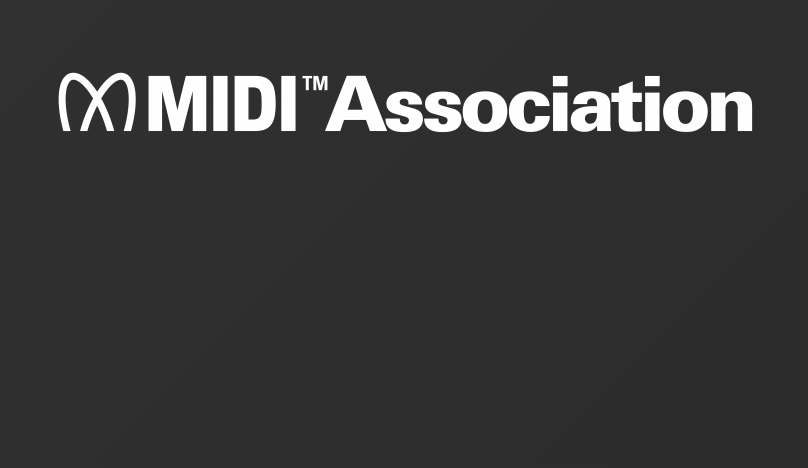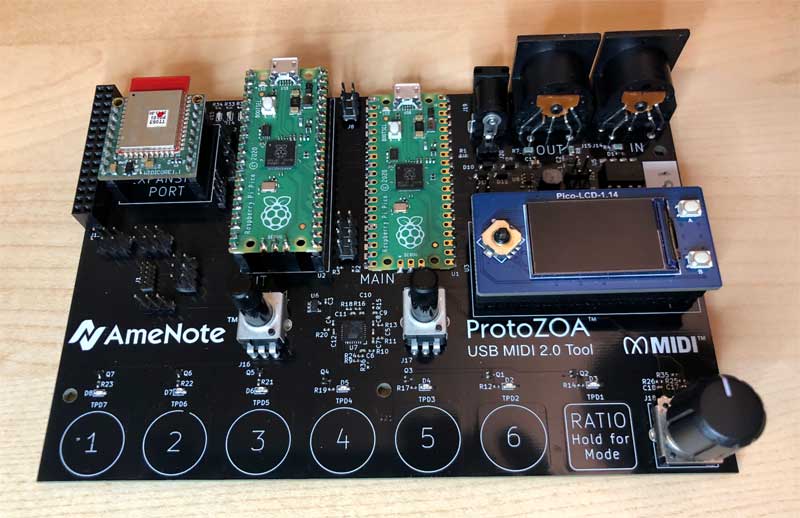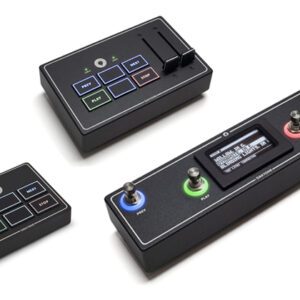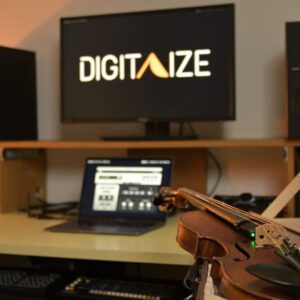
We only recommend products that we use and believe in. When you purchase through links on our site, we may earn an affiliate commission.
The MIDI Association has released details of the ongoing, industry-wide initiative by over 50 MIDI Association companies to develop MIDI 2.0 products and services. Despite the challenges presented by the pandemic, MIDI Association members persevered, and have addressed these challenges through global collaboration and cooperation.
Yamaha Corporation has funded the development of the MIDI Workbench, a software tool for MIDI 2.0 testing and compliance developed by Australian Andrew Mee.
Mee has also updated firmware for the TB2 Groovesizer, an Open Source MIDI 2.0 hardware synthesizer developed by Jean Marais, a South African living in Taiwan.
Canadian-based company AmeNote, founded by industry veterans Mike Kent (Chair of the MIDI 2.0 Working Group) and Micheal Loh (founder of iConnectivity) has designed ProtoZOA, a flexible Raspberry Pico based prototyping tool for MIDI 2.0.

To accelerate MIDI 2.0 development, the MIDI Association has helped fund ProtoZOA’s technical development and donated ProtoZOAs and TB2 Groovesizers at no charge to any MIDI Association member who wanted to join the prototyping effort.
These tools work together for prototyping and testing foundational MIDI 2.0 features such as the new Universal MIDI Packet, MIDI-CI Discovery, Profile Configuration, Property Exchange, USB MIDI 2.0, and MIDI 1.0 to 2.0 Translation. With these advances, companies around the world now have the software and hardware tools needed to build, test, and ensure the compatibility of their MIDI 2.0 products.
Amenote developed the ProtoZOA using Raspberry PICO CPUs because they are openly accessible and extremely affordable. ProtoZOA is a USB MIDI 2.0 device that software developers can use to test with their MIDI 2.0 applications and its firmware provides source code that hardware developers can incorporate in their own MIDI 2.0 devices. MIDI Association members are currently helping to test, and optimize the ProtoZOA code. “Our plan is to release most of the ProtoZOA source code as Open Source with a permissive license.” noted AmeNote’s Mike Kent . “That will allow even non-MIDI Association members to use the code to develop MIDI 2.0 products.”
With a hardware and software foundation for MIDI 2.0 development in place, companies can move forward to take advantage of the protocol’s advanced features—as well as maintain full backward compatibility with existing MIDI 1.0 gear.
“These MIDI 2.0 prototyping efforts highlight what is truly unique about the MIDI Association,” stated MIDI Association president, Athan Billias. “Since MIDI’s genesis, companies that are traditionally fierce competitors have chosen cooperation as the best way to solve difficult problems—and to contribute those solutions at no charge back to the global community, for the benefit of musicians, artists, and engineers everywhere.”



